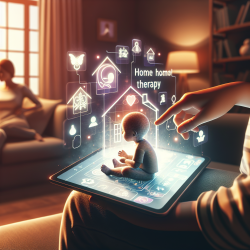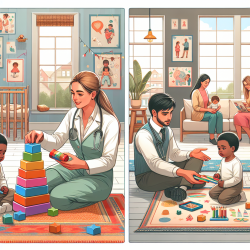As a speech-language pathologist passionate about improving outcomes for children, I am always on the lookout for innovative, evidence-based practices. A recent study titled Attitudes toward innovative mental health treatment approaches in Germany: E-mental health and home treatment provides valuable insights that can significantly impact our field.
Embracing E-Mental Health
Despite the advanced development of e-mental health treatments, their acceptance remains low. The study found that less than 20% of participants preferred online-based therapy. However, the potential benefits of e-mental health are too significant to ignore:
- Improved accessibility for children in remote areas.
- Reduction of stigma associated with traditional therapy settings.
- Flexibility to accommodate busy family schedules.
To increase acceptance, we need to actively promote the benefits of e-mental health. Sharing success stories and providing educational resources can help demystify these innovative approaches.
Home Treatment: A Promising Alternative
The study also explored attitudes toward home treatment, finding a higher acceptance rate (~50%) compared to e-mental health. Home treatment can offer several advantages:
- Comfort of receiving therapy in a familiar environment.
- Potential to avoid or shorten inpatient treatment.
- High treatment satisfaction among patients and their families.
Implementing home treatment approaches in routine care can provide a more holistic and less intrusive option for children needing therapy.
Next Steps for Practitioners
For practitioners, these findings highlight the importance of being open to innovative treatment methods. Here are some actionable steps:
- Educate yourself and your team about the benefits and implementation of e-mental health and home treatment.
- Incorporate these options into your practice to offer more flexible and accessible care.
- Encourage families to share their experiences with these innovative approaches to build a supportive community.
By embracing these innovative treatment approaches, we can make a significant impact on the lives of children in need of therapy.
To read the original research paper, please follow this link: Attitudes toward innovative mental health treatment approaches in Germany: E-mental health and home treatment.










